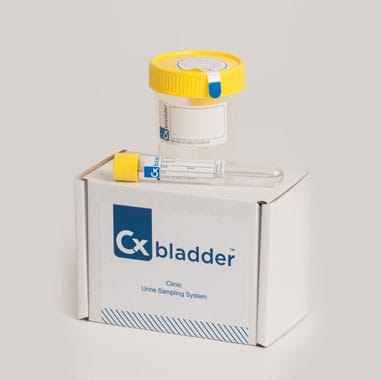How Common is Bladder Cancer?
Worldwide, bladder cancer is the tenth most common cancer. Like all cancers, bladder cancer is a serious disease, warranting careful diagnosis and treatment planning.
If you've been diagnosed with bladder cancer or think you might have the condition, you likely have a number of questions and concerns. The topic can feel overwhelming at first, but accessing reliable information can help you feel more confident in your next steps.
What Is Bladder Cancer?
The bladder is a hollow, muscular, balloon-like organ with a flexible wall. It is situated in the pelvis and collects and stores the urine produced by your kidneys. When the bladder is full, and you need to urinate, the bladder's muscles contract and push urine into a tube called the urethra to exit the body.
Bladder cancer is a disease of the urinary tract that occurs when the cells making up the urinary bladder start to grow out of control. Bladder cancer usually starts in the bladder lining, or urothelium, but cancer cells can also spread to deeper bladder layers and other parts of the body.
If bladder cancer affects only the urothelium, it is called superficial bladder cancer. If bladder cancer spreads to the muscle layer, it is called invasive. Bladder cancers that spread to the muscle layer of the bladder or other parts of the body are more difficult to treat.
The prognosis for patients with bladder cancer depends on the type of bladder cancer as well as how advanced the cancer is when detected. This makes early detection essential to successful treatment.

Diagram of the male urinary system

Diagram of the female urinary system
What Are the Signs and Symptoms of Bladder Cancer?
Bladder cancer causes a number of symptoms. Most commonly, patients with this condition can experience:
- Blood in urine
- Pelvic pain
- Painful urination
Bladder cancer shares symptoms with several other urinary system problems, so you should always seek medical examination if you notice these signs.
Who Can Develop Bladder Cancer?
It's possible for bladder cancer to affect anyone. However, some people are naturally more likely than others to have bladder cancer, and some external risk factors can also increase your likelihood of developing the disease.
Some of the factors that influence risk of bladder cancer include:
- Age: Though bladder cancer can affect anyone, it most often occurs in older adults. Urinary system cancer is most common in men aged 55+ years and rare in people aged less than 40 years.
- Sex: Males develop bladder cancer more often than females. The bladder cancer occurrence rate is four times higher in men than in women.
- Race: White patients have an increased risk of bladder cancer compared to other patients.
- Chemical exposure: Smoking and exposure to certain manufacturing chemicals have been linked to an increased risk of bladder cancer.
- Chronic bladder irritation: Repeated urinary tract infections and inflammation can increase your risk for bladder cancer. Such irritation can result from extended urinary catheter use or parasitic infections such as schistosomiasis.
- Personal or family cancer history: If you've had bladder cancer in the past, you're more likely to get it again. Though bladder cancer rarely runs in families, a family history of bladder cancer can also increase your risk.
How Can You Prevent Bladder Cancer?
It's difficult to prevent bladder cancer since it's a disease largely out of your control. However, you can protect yourself by not smoking, avoiding chemicals linked to bladder cancer, eating a balanced diet and preventing and seeking treatment for bladder infections when they occur.
What Treatment Options Are Available?
Luckily, most bladder cancers are diagnosed at an early stage, when they are highly treatable. The type of treatment that's right for you will depend on a number of factors, such as the stage of cancer, other health conditions you have and your personal feelings about each option.
If you're diagnosed with bladder cancer, your doctor will discuss treatment options with you in depth. Some common treatment paths that help patients recover from bladder cancer include surgery, radiation therapy and chemotherapy.
After you undergo treatment, your doctor will continue to monitor you for signs of cancer recurrence. Bladder cancer survivors require follow-up testing for many years after their first treatment.
How Do Doctors Diagnose Bladder Cancer?
Early diagnosis is one of the biggest predictors for successful treatment, so your physician may use several methods — including imaging tests, biopsies and lab work — to confidently diagnose or rule out bladder cancer.
If You're Concerned About Bladder Cancer, Ask Your Doctor About Cxbladder
Cxbladder is a suite of easy-to-use and non-invasive tests designed to help rule out urothelial bladder cancer, the most common form of the disease, in patients experiencing blood in urine (hematuria) and to monitor for recurrent disease in those who have been treated for non-muscle invasive bladder cancer.
Cxbladder is an advanced genomic test that analyses five biomarker genes. The test reduces the need for further invasive procedures, when patients are at a low risk of disease. With a single urine sample, Cxbladder delivers exceptional performance and meaningful results and can provide peace of mind and inform a positive treatment direction for patients, caregivers and doctors.
Contact Us Today Learn More About Cxbladder
Last Updated: 02 May 2024 10:50 am
Browse Our Latest Blog Articles
Bladder Cancer Key Facts 2018
Bladder cancer is the 6th most common cancer in the USA. In 2018, over 81,000 people will be diagnosed for the first time. Find out more key facts about bladder cancer in this informative video.

-

Talk to your doctor
Are you alarmed about blood in your urine? Worried about bladder cancer? Download our patient discussion guide for a list of questions you can ask your doctor.
Download discussion guide now -

Get Cxbladder
Contact us by phone or email, or fill out an online form and a Cxbladder representative will get back to you.
Complete an information request form today







